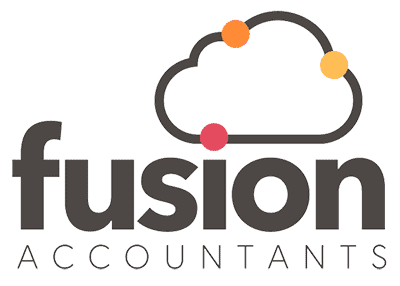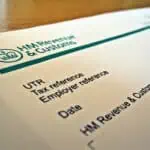Latest EU VAT changes and what they mean for UK eCommerce businesses
Reading Time:
This year has been transformative in the VAT world, ushering in pivotal changes and reforms that have significant effects on international trade for eCommerce businesses. SimplyVAT.com are always on standby to help international businesses handle incoming shifts in VAT and stay selling compliantly.
Let us look at a few of the biggest changes to VAT in 2021.
Distance selling to the EU
Previously, Distance Selling Thresholds were decided by each EU member state and required businesses to collect VAT in the departure country of the goods until they breached a destination-specific threshold where their customers are located. After doing so, sellers need to VAT register in this country and apply their local tax rate to each sale.
Now that country-specific Distance Selling Thresholds have been abolished. The rules have changed. A EUR 10,000 pan-EU threshold will apply for EU-established businesses, but only to businesses who have one country of establishment and sell goods from the one-EU country.
For the UK and non-EU businesses, since the passing of Brexit, Distance Selling Thresholds in the EU will no longer apply. However, each consignment imported to customers in the EU will need to apply VAT and be subject to standard customs procedures.

The introduction of OSS/IOSS
The introduction of OSS and IOSS has been one of the most significant EU VAT changes to arrive in 2021. To briefly run through why you may require an OSS or IOSS registration, here are the main categories of businesses that may be eligible:
The One-Stop-Shop (OSS) is split into two schemes, Union OSS and non-Union OSS. Union OSS can be used by EU-based businesses to report the VAT due on intra-EU sales of goods and services. It can also be used by non-EU established businesses to report the VAT due on the intra-EU sale of goods only.
Non-Union OSS can be used by non-EU established businesses to report intra-EU B2C services sales only.
The Import One-Stop-Shop (IOSS) is for both EU and non-EU businesses and marketplaces to report the VAT due on B2C distance sales of imported goods to EU customers. The IOSS scheme will only apply to consignments below EUR 150; however, anything above this will be subject to import VAT and standard customs procedures.
In practice, the process of IOSS is:
- Register for IOSS and select a member state – most EU countries require non-EU businesses to appoint an intermediary. Businesses established in the EU must register there.
- Charge local rates of VAT at the point of sale based on where your customers are if your consignment value remains below EUR 150
- Report your collected VAT via a monthly IOSS return to the member state in which you are registered through an intermediary or established.
IOSS is an optional scheme where the alternative is to use the Special Arrangement for postal operators where they collect VAT at the point of importation from the customer.
Abolition of Low Value Consignment Relief
This year Low-Value Consignment Relief (LVCR) has also been abolished, requiring businesses to charge VAT on all commercial goods imported into the EU. Previously, goods valued at up to EUR 22 were exempt from VAT when imported into the EU, which created an unfair market between EU and non-EU businesses. The LVCR has been abolished to make it fairer, and VAT will now be due on all imported goods, irrespective of the value.
To ease the administrative burden this may cause businesses, customs operators, and couriers, the IOSS scheme is now available. Any VAT due on transactions can be reported on a single monthly return. Remember, any consignment with a value exceeding EUR 150 will be beyond the parameters of the IOSS scheme and will instead be subject to standard customs procedures.
Marketplace VAT obligation changes

Marketplaces have also seen change, now required to take responsibility for VAT in specific circumstances which may benefit small businesses selling through significant marketplaces – the scenarios where marketplaces become liable to collect and report VAT are as follows:
- When distance sale of imported goods made on their platform by non-EU established sellers are in consignments of less than EUR 150
- When intra-EU sales of goods are made to EU customers from stock that is stored within the EU by a non-EU based business, irrespective of the value of goods.
Note that by holding stock in an EU country, you will still be required to register for VAT locally in the country where your stock is held.
New GST/HST rules for selling to Canada
Along with the EU VAT reforms that came into place on July 1, 2021, Canada also ushered in changes to imported eCommerce supplies from non-resident traders. As such, the new proposed rules will ensure that both resident and foreign eCommerce sellers charge and collect GST/HST on all supplies sold to Canadian customers.
The proposed changes will affect all non-resident businesses, and so the following supplies will be affected by the new regulations:
- Supply of digital goods and services to consumers located in Canada;
- B2C supplies of goods within Canada or facilitating those supplies.
- Supplies of short-term accommodation in Canada when the sale if facilitated through an online platform. Then the operator of the online platform would likely be liable for the tax.
This guest post on rule changes for UK eCommerce businesses by our VAT services partner SimplyVAT.com provides tailor-made compliance services for international online sellers globally.
Fusion clients will receive £50 off their registration fee & 50% off their first month of VAT compliance when using SimplyVAT.com. Call us to find out more.
Visit our eCommerce page for much more information on the full range of services we offer to online retailers.
With SimplyVAT.com, you have a dedicated VAT partner that can navigate the often-complex world of international compliance for you. They have helped thousands of businesses succeed amongst the changes that occurred in 2021 and continue to assist online sellers every day as they expand.







